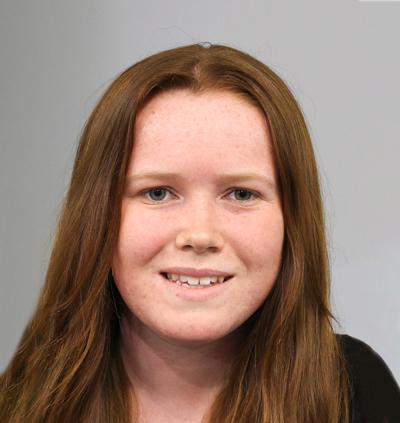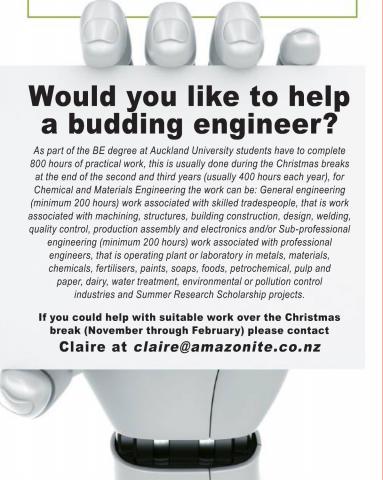Nearing the end of semester one I have a much clearer idea of what chemical and material engineering involves, and am starting to learn the skills helpful for my career.
I’ve had to have a change in mindset as I am no longer learning content purely to pass the exam that I can promptly forget, but need to have a strong understanding in order to use this knowledge in industry. This focus is helped by the lecturers as most concepts being taught are being directly applied to industry.
For example, after studying the fundamentals of chemistry we are now learning how conducting polymers can be processed to create actuators and membranes and why this is actually useful. This semester I’ve had five labs, with four of these labs only having four students at a time. This is due to large machines we use e.g. the Instron Tensile Tester as with only one machine, in order to get an idea of how to use and interpret the data from it, it is much easier in a small group.
Small groups allow you to be much more hands on, such as in my metallography lab where I got to remove the samples from the salt baths, hardness test and tensile test giving a much better understanding of the processes.
As I mentioned in my previous article I was about to do my workshop course. The course consisted of learning basic skills through small projects e.g. MIG and ARC welding (T and I beams), metal working skills (drill guide) and using a mill and lathe (level and a plum bob). These projects allowed us to gain a strong understanding of the processes so that we can use them in the future.
Claire Parker is our budding engineer, she is now in her 2nd year studying Chemical and Materials Engineering Degree at the University of Auckland. Throughout her course she will be sharing my expectations and experiences while studying and adapting to university life.







